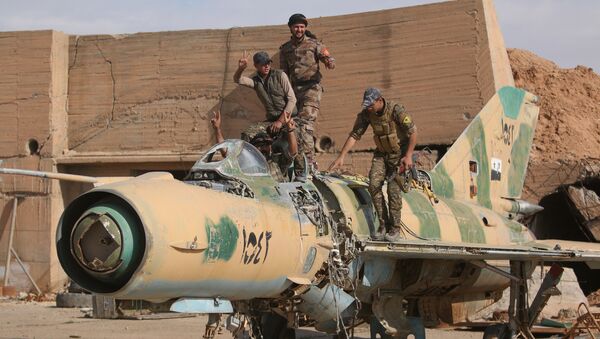Turkish President Recep Tayyip Erdogan is "a charismatic and independent politician, who doesn't take orders from Washington," the analyst said. "I think that the situation would escalate. There are signs that this process has already started due to the general state of affairs in Syria, as well as Turkey's operation in Syria and Iraq. [Washington's move] is absolutely unacceptable to Erdogan. It will only exacerbate existing tensions and animosities."
Sotnikov, an expert at the Center of International Security of the Institute of World Economy and International Relations (IMEMO), mentioned that deepening ties between the US and the Kurds will be on the agenda of Erdogan's upcoming visit to Washington, scheduled to be held on May 15-17.
"We will witness a battle of words between Erdogan and Trump," the analyst suggested. "Erdogan will surely raise the issue. Both sides will engage in a heated discussion on the matter," the analyst suggested.
The SDF is currently focused on encircling Raqqa, the capital of Daesh's caliphate. The US-led coalition has provided aerial assistance to the Kurds, shared intelligence data and offered training, but did not send lethal weapons to the SDF.
Ankara views any Kurdish group supposedly affiliated with the Kurdistan Workers' Party (PKK) as a terrorist organization. President Recep Tayyip Erdogan and his supporters have also maintained that the Syrian Kurds are fighting for greater autonomy, if not independence, which could fuel unrest in southeastern Turkey, mostly populated by the Kurds.
As a result, Ankara has been fiercely opposed to Washington providing any assistance to the SDF, let alone lethal weapons.
Never miss a story again — sign up to our Telegram channel and we'll keep you up to speed!





